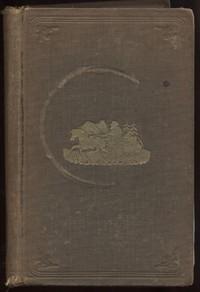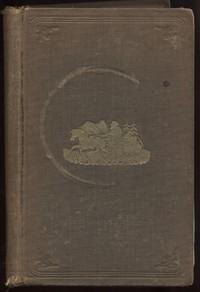Read this ebook for free! No credit card needed, absolutely nothing to pay.
Words: 100260 in 42 pages
This is an ebook sharing website. You can read the uploaded ebooks for free here. No credit cards needed, nothing to pay. If you want to own a digital copy of the ebook, or want to read offline with your favorite ebook-reader, then you can choose to buy and download the ebook.
. CHAPTER
THE PHILISTINES
When Arthur Fenton, the most outspoken of all that band of protesting spirits who had been so well known in artistic Boston as the Pagans, married Edith Caldwell, there had been in his mind a purpose, secret but well defined, to turn to his own account his wife's connection with the Philistine art patrons of the town. Miss Caldwell was a niece of Peter Calvin, a wealthy and well-meaning man against whom but two grave charges could be made,--that he supposed the growth of art in this country to depend largely upon his patronage, and that he could never be persuaded not to take himself seriously. Mr. Calvin was regarded by Philistine circles in Boston as a sort of re-incarnation of Apollo, clothed upon with modern enlightenment, and properly arrayed in respectable raiment. Had it been pointed out that to make this theory probable it was necessary to conceive of the god as having undergone mentally much the same metamorphosis as that which had transformed his flowing vestments into trousers, his admirers would have received the remark as highly complimentary to Mr. Peter Calvin. To assume identity between their idol and Apollo would be immensely flattering to the son of Latona.
Fenton understood perfectly the weight and extent of Calvin's influence, yet, in determining to profit by it, he did not in the least deceive himself as to the nature of his own course.
"Honesty," he afterward confessed to his friend Helen Greyson, who scorned him for the admission, "is doubtless a charming thing for digestive purposes, but it is a luxury too expensive for me. The gods in this country bid for shams, and shams I purpose giving them."
So well did he carry out his intention, that in a few years he came to be the fashionable portrait-painter of the town; the artist to whom people went who rated the worth of a picture by the amount they were required to pay for it, and the reputation of the painter in conventional circles; the man to whom a Boston society woman inevitably turned when she wished the likeness of her charms preserved on canvas, and when no foreigner was for the moment in vogue and on hand.
The steps by which Fenton attained to this proud eminence were obvious enough. In the first place, he persuaded Mr. Calvin to sit to him. Mr. Calvin always sat to the portrait painters whom he endorsed. This was a sort of official recognition, and the results, as seen in the needlessly numerous likenesses of the gentleman which adorned his Beacon Hill mansion, would have afforded a cynic some amusement, and not a little food for reflection. Once launched under distinguished patronage, Fenton was clever enough to make his way. He really was able to paint well when he chose, a fact which was, on the whole, of less importance in his artistic career than were the adroitness of his address, and his ready and persuasive sympathy. The qualifications of a fashionable doctor, a fashionable clergyman, and a fashionable portrait-painter are much the same; it is only in the man-milliner that skill is demanded in addition to the art of pleasing.
As usually happens in such a case, Fenton's old friends avoided him, or found themselves left in the distance by his rapid strides toward fame and fortune. Then such of them as still came in contact with him made his acquaintance in a new character, and learned to accept him as a wholly different man from the one they had supposed themselves to know in the days when he was never weary of pouring forth tirades against the Philistinism he had now embraced. They admired the skill with which he painted stuffs and gowns, but among themselves they agreed that the old-time vigor and sincerity were painfully lacking in his work; and if they grumbled sometimes at the prices he got, it is only just to believe that it was seldom with any real willingness to pay, in the sacrifice of convictions and ideals, the equivalent which he had given for his popularity.
Fenton was one morning painting, in his luxuriously appointed studio, the portrait of a man who was in the prime of life, and over whom vulgar prosperity had, in forming him, left everywhere her finger marks plainly to be seen. He was tall and robust, with light eyes and blonde whiskers, and a general air of insisting upon his immense superiority to all the world. That he secretly felt some doubts of the perfection of his social knowledge, there were indications in his manner, but on the whole the complacency of a portly bank account overcame all misgivings of this sort. His character might have been easily inferred from the manner in which he now set his broad shoulders expansively back in the armchair in which he was posing, and regarded the artist with a patronizing air of condescending to be wonderfully entertained by his conversation.
"You are the frankest fellow I ever saw," he said, smiling broadly.
"Oh, frank," Fenton responded; "I am too frank. It will be the ruin of me sooner or later. It all comes of being born with a habit of being too honest with myself."
"Honesty with yourself is generally held up as a cardinal virtue."
Free books android app tbrJar TBR JAR Read Free books online gutenberg
More posts by @FreeBooks


: Des Meeres und der Liebe Wellen: Trauerspiel in fünf Aufzügen by Grillparzer Franz - Leander (Greek mythology) Drama; Hero (Greek mythology) Drama DE Drama


: Roughing It Part 6. by Twain Mark - West (U.S.) Description and travel; Hawaii Description and travel; Twain Mark 1835-1910 Travel West (U.S.); Authors American Homes and haunts West (U.S.); West (U.S.) Intellectual life 19th century






